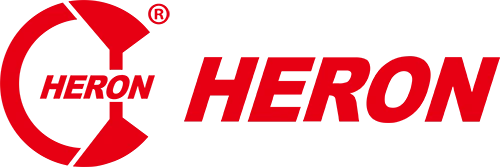Modern car manufacturing demands flawless joining technology to produce safe, durable vehicles. The advanced automotive welder is at the core of this process, helping suppliers and OEMs achieve high-strength, highly repeatable results from chassis frames to interior nut welding. With evolving materials and tighter standards, the right welding equipment makes all the difference.
What Is an Automotive Welder?
An automotive welder is engineered to join various automotive materials—carbon steel, hot-stamped steel, coated sheet, or thin plates—with precise control and minimal defect rates. Heron’s MFDC (Medium Frequency DC) automotive welders offer stable current and voltage, ensuring reliable fusion and addressing the industry’s biggest pain points: inconsistent quality, energy waste, and time-intensive rework.
Key Benefits for Automotive Manufacturers
-
Superior Weld Quality: Stable parameters reduce defects and improve appearance, even in complex or high-strength materials.
-
Cost & Energy Efficiency: Lower energy use and minimized secondary operations keep costs down and support sustainability.
-
Productivity Boost: Automated controls, quick setups, and reduced downtime mean faster production lines and greater throughput.
-
Material Versatility: Effortlessly handle carbon steel, coated alloys, thin plates, and advanced composites for future-ready vehicles.
-
Safety & Reliability: Welded joints meet stringent global standards for crashworthiness and longevity—critical for automotive integrity.
Prime Industry Solutions
-
Chassis and Body Frames: Strong, consistent joins handle vibration and impact, essential for safety-critical parts.
-
Nut and Stud Welding: Heron's systems expertly weld fasteners for interiors, body-in-white, and suspension.
-
Battery and EV Components: Advanced precision systems support the next generation of electric vehicles and high-voltage assemblies.
Troubleshooting Automotive Welding Issues
1. Inconsistent Weld Results or Defects
-
Ensure electrodes and machine settings match material spec
-
Regularly calibrate power and timing for each material batch
-
Monitor for surface contamination or part misalignment
2. Energy Overuse or Equipment Inefficiency
-
Utilize real-time monitoring to optimize production power usage
-
Schedule routine maintenance to fix wear and calibration drift
3. Downtime or Slow Throughput
-
Keep spare parts on hand for rapid replacements
-
Implement robust operator training and clear documentation
4. Appearance Problems (burn marks, distortion)
-
Adjust machine control for optimal current and pressure
-
Select appropriate cooling and shielding for delicate parts
Why Choose Heron’s Automotive Welder?
Heron’s automotive welder is trusted by global suppliers for unbeatable control, adaptability, and durability. With decades of experience, powerful technology, and customized support, Heron helps manufacturers meet changing standards, boost efficiency, and future-proof their lines against shifting industry demands.
Conclusion: Smarter Welding for Future Automotive Success
Whether supplying OEMs or manufacturing high-value components, an automotive welder accelerates productivity and delivers reliable, safe joints every time. Trust Heron for advanced welding solutions and expert support to raise your quality and performance benchmarks.



